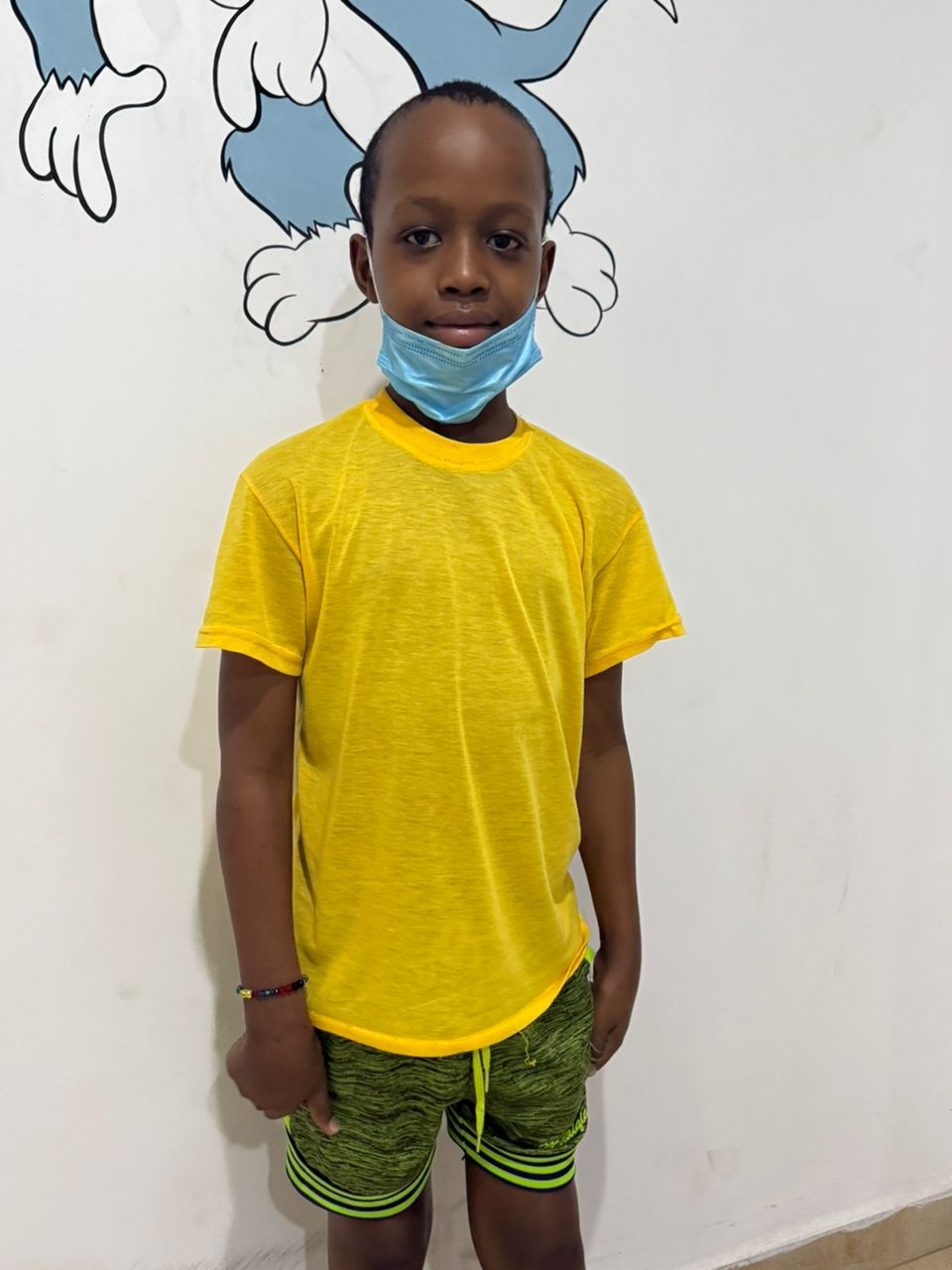Nicanori
Nicanori Boniface is a quiet and thoughtful 6-year-old boy who lived in a mountainous village called Hanang in Tanzania. He loved drawing in the dirt with sticks and walking to school with his friends.
But one day, he noticed something strange. His eyes started to feel funny especially the left one. They were hurting and slowly began to swell out a little. He had trouble looking at bright light, and even going outside became difficult.
His parents thought maybe he was just tired or had an eye infection. But as weeks went by, he didn’t get better. He started feeling weak and tired all the time. Even walking around made his legs hurt. He sometimes felt dizzy his body felt too weak to hold him up. His mother had to carry him around the house. They knew something was really wrong.
They first took Nicanori to Benjamin Mkapa Hospital in Dodoma. They examined him carefully and said he needed to be referred to Muhimbili National Hospital where more tests could be done. It was a long journey, but Nicanori was brave.
He didn’t know exactly what was happening, but he knew the doctors, MNH and Tumaini la Maisha were trying their best to help him feel better. He was diagnosed to have Acute Myeloid Leukemia and was counseled on the treatment map.
AML treatment is one of the toughest schedules we give to children because the disease itself is aggressive. The illness made him sick and the treatment made him feel worse initially. He stayed in the hospital for many months and needed multiple courses of antibiotics and blood transfusions as his little body fought to rid itself of the cancer cells. He missed his home, his friends, and his teachers. But his mother stayed with him. She held his hand, told him stories, and reminded him how strong he was.
Even though his body was weak and in pain, Nicanori learned to trust the team in Upendo, that they cared about him and were there to help him; and he let them know when he needed more support – whether from the nurse, doctor, teacher or play staff or from his mum or his pals on the ward. He found his voice and his community at the hospital with every passing day he found hope and belief that he would get better.
Nicanori learned something very important during his journey, being strong doesn’t always mean running fast or climbing high. Sometimes, being strong means asking for help, staying hopeful, and taking one step at a time.
And that’s what Nicanori did one brave step at a time.

